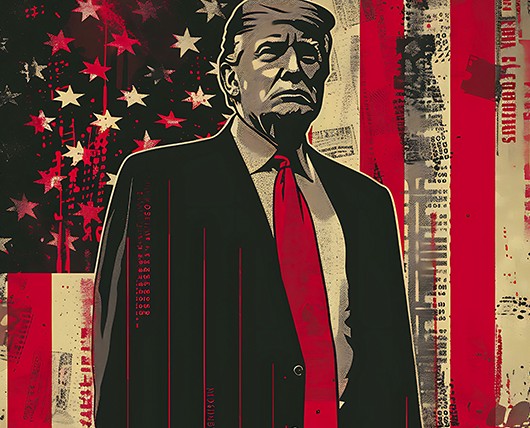Giriş
Bilindiği üzere uluslararası yolsuzluğun önlenmesi amacıyla, Amerikan Yurtdışı Yolsuzluk Uygulamaları Kanunu (Foreign Corrupt Practices Act) (“FCPA”) uyarınca yabancı kamu görevlilerine görevlerini ifa ederken ticari avantaj sağlamak için herhangi değerli bir şey teklif etmek yasaktır.
Bununla birlikte FCPA son derece geniş bir yetki alanına sahiptir. Şöyle ki, FCPA’nın ilgili hükümleri ve yaptırımları, hangi ülke hukukuna göre kuruldukları fark etmeksizin A.B.D Borsası’nda işlem gören tüm şirketler, A.B.D vatandaşı gerçek kişiler veya A.B.D menşeili veya iştiraki olan tüzel kişiler ile A.B.D sınırları içinde yabancı kamu görevlisine rüşvet ödemesi yapan herhangi bir kişi veya şirkete uygulanabilir. Bu çerçevede, söz konusu gruplardan birine giren tüzel kişiliklere ilişkin şirketlerin sorumluluğu ilkeleri uygulanmakta olup, belirli durumlarda ana şirketler de iştiraklerinin eylemleri nedeniyle cezalandırılabilirler. Bu kapsamda ve örnek dosyalardan görüldüğü üzere, A.B.D makamları ana şirketin, iştiraki üzerinde kontrole sahip olup olmadığı ve ihlal niteliğindeki eylemlere ilişkin bilgisi olup olmadığını değerlendirilir. İki unsurun da varlığı halinde ise ana şirket, ihlalin gerçekleştiğine ilişkin gerçek bir bilgisi olmasa dahi, genellikle iştirakinin eylemlerinden sorumlu tutulmakta, FCPA hükümlerinin ihlali nedeniyle hukuki ve cezai sorumluluğu doğabilmektedir.
Ana Şirketlerin İştiraklerin Eylemlerinden Sorumluluğunun Kapsamı
Öncelikle belirtilmelidir ki, FCPA’in herhangi bir şekilde uygulama alanı bulması belirli koşulların sağlanmasına bağlıdır. Bunlar, (i) rüşvet verenin, işiyle ilgili avantaj sağlama amacı gütmesi, (ii) ilgili ödeme veya teklifin yolsuzluk amacı ile yabancı kamu görevlisine yapılmış olması ve (iii) söz konusu teklifin değerli bir şeye ilişkin olmasıdır. Bu koşulların sağlanmış olması halinde ve grup şirketlerinin söz konusu olduğu durumlarda ise hangi şirketin sorumlu olacağı ayrıca değerlendirilmelidir.
FCPA Kılavuzu’nda da açıkça görüldüğü üzere ana şirketler, iştiraklerinin FCPA hükümleri ihlallerinden sorumlu tutulabilir. Bu durum ilk olarak ana şirketin, iştirakinin ihlale ilişkin eylemine doğrudan katkıda bulunması veya iştiraki bu doğrultuda yönlendirmesi, ihlale ilişkin talimatı bizzat vermesi gibi hallerde ortaya çıkar. İkinci olarak ise ana şirket, temsilcilik ilkeleri çerçevesinde sorumlu tutulabilir. Bu kapsamda A.B.D. Menkul Kıymetler ve Borsalar Komisyonu (Securities and Exchange Commission) (“SEC”), ana şirketin iştiraki üzerindeki kontrol mekanizmasını inceler. Ana şirketin, iştirakinin eylemlerine ilişkin bilgi sahibi olduğu hallerde ana şirketin de FCPA kapsamında cezai ve hukuki sorumluluğu doğabilir.
Bununla birlikte hangi durumlarda ana şirketin iştirakinin eylemleri konusunda bilgi sahibi olduğuna ilişkin net bir düzenleme bulunmamakta, sadece belirli örnek kriterler kullanılmaktadır. Bilgiye sahip olma kavramı yine FCPA’nın diğer hükümlerinde olduğu gibi geniş bir kapsamda kullanılır. Nitekim, rüşvet verileceğini bilmek, bu konuda güçlü bir kanıya sahip olmak veya yüksek bir ihtimalin farkında olmak gibi durumlarda, bilmek unsurunun sağlandığı kabul edilir. Bilmek eylemine ilişkin unsurlar ise Frederick Bourke dosyasında detaylıca incelenmiştir. Bourke, Azerbaycan’da yatırım yaptığı şirketin rüşvet ve yolsuzluk faaliyetlerinden FCPA kapsamında sorumlu tutulmuştur. Her ne kadar Bourke rüşvet verildiğini gerçekten bilmiyor olsa da gerçeği ortaya çıkarmamak için direnmesi ve ciddi emareleri göz ardı etmesi nedeniyle suçun işlendiğine ilişkin bilgisi olduğuna karar verilmiştir. Örnek dosyalardan ise, ana şirketlerin, iştiraklerinin eylemlerine ilişkin bilgisi olup olmadığı değerlendirilirken de benzer bir yaklaşım kullanıldığı görülür.
Örnek Dosyalar
Örneğin, United Industrial dosyasında SEC, iştirakinin üst düzey yöneticisinin doğrudan ana şirketin İcra Kurulu başkanına raporlama yaptığını, ana şirketin hukuk departmanının gerekli incelemeleri yapmaksızın rüşvetin verilmesine aracılık eden üçüncü kişi aracıları onayladığını, ilgili aracıya yapılan ödemenin ana şirket çalışanı tarafından onaylanmış olması gibi nedenlerle, ana şirketin iştirakinin eylemlerine ilişkin bilgisi ve kontrolü olduğu ve FCPA kapsamında sorumlu tutulabileceği sonucuna varmıştır.
Benzer şekilde, 2012 yılında New York Borsası’na kote İsviçre menşeili Tyco International Ltd. (“Tyco”), TEM/A-COM, Inc. (“TEMACOM”) isimli Florida menşeili iştiraki başta olmak üzere, Çin, Almanya, Tayland ve Fransa’daki diğer iştiraklerinin FCPA ihlalleri nedeniyle A.B.D. makamlarına ceza ödemeyi kabul etmiştir. Şöyle ki, TEMACOM çalışanlarının bilgisi dahilinde satış temsilcisi aracılığı ile yabancı yetkililere rüşvet verilmiş ve bu nedenle ana şirket olan Tyco’nun sorumluluğu gündeme gelmiştir. Bu kapsamda SEC, ana şirket olan Tyco’nun dört üst düzey yöneticisinin aynı zamanda TEMACOM yöneticisi olması ve Tyco yöneticilerinden birinin aynı zamanda TEMACOM’un yönetim kurulu üyesi olması gibi sebeplerle Tyco’nun TEMACOM’u kontrol ettiği sonucuna varmıştır. Bu kapsamda söz konusu yöneticilerin, şirketlerin kurumsal yapısı çerçevesinde Tyco’nun temsilcileri gibi hareket ettiğine ve dolayısıyla bahse konu yasadışı eylemlerden haberi olmasa dahi, Tyco’nun ihlalden sorumlu olduğu iddia edilmiştir.
Yine bu doğrultuda, PTC Inc.’e (“PTC”) FCPA hükümlerinin ihlali ile ilgili bir dosyada SEC, PTC’nin tamamına sahip olduğu iki iştirakinin (“PTC-Çin İştirakleri”), Çin hükümeti yetkililerine yaptığı uygunsuz ödemeleri değerlendirmiştir. SEC, PTC-Çin İştirakleri’nin komisyon ödemeleri veya alt tedarikçi ücreti adı altında maskelenen üçüncü şahıslara ödemeler yaptığını, bu ödemelerin ise sonrasında Çin hükümet yetkililerinin işle ilgili olmayan yurtdışı seyahatlerini ödemek için kullanıldığını ve satış personellerinin Çinli hükümet yetkililerine hediyeler vermesine izin verdiğini iddia etmiştir. Bu kapsamda SEC, çeşitli faktörleri değerlendirdikten sonra, PTC’nin PTC-Çin İştirakleri üzerinde önemli derecede kontrole sahip olduğu sonucuna varmıştır. İlk olarak SEC, PTC-Çin İştirakleri çalışanlarının bağımsız bir yönetim yapısına sahip olmadığını, PTC’ye küresel fonksiyonel raporlama hatları olduğunu; bu durumun ise PTC’nin PTC-Çin’in faaliyetleri üzerinde kontrol sağladığını belirtmiştir. İkinci olarak, PTC-Çin İştirakleri’nin kıdemli satış personellerinin, Çin’deki PTC çalışanı olan Bölüm Satışlardan Sorumlu Başkan Yardımcısına raporlama yaptığını, satış operasyonları ve küresel hizmetler için ise çeşitli PTC-Çin İştirakleri çalışanlarının hem Çin hem de A.B.D’deki PTC çalışanlarına raporladığını savunmuştur. Son olarak, PTC, PTC-Çin İştirakleri dahil olmak üzere iştirakleri için ticari ve finansal hedefleri belirleyerek ve çeşitli iştirakleri arasında tahsis edilmek üzere bütçe sağlamıştır. Bu kapsamda SEC, temsilcilik ilkeleri uyarınca, PTC-Çin İştirakleri’nin ve çalışanlarının yolsuz ödemelere katılırken PTC’nin temsilcileri olarak ve PTC’nin yararına hareket ettikleri sonucuna varmıştır.
Sonuç
FCPA uyarınca ana şirketler, iştiraklerinin ihlal doğuran eylemlerinden doğrudan veya dolaylı olarak sorumlu tutulabilirler. Bu kapsamda ana şirket, ihlal eylemine ilişkin talimatı bizzat kendisi vermesi halinde doğrudan sorumlu tutulabilir. Bununla birlikte, ihlal eylemine ilişkin talimatı bizzat kendisi vermese dahi, iştirak üstünde belirli bir kontrol mekanizmasına sahip ve dolayısıyla faaliyet ve eylemlerinden haberdar olduğu durumlarda da ana şirketin dolaylı sorumluluğu gündeme gelebilir. Ana şirketin kontrol mekanizmasına sahip olup olmadığı değerlendirilirken, ortak yöneticilere sahip olunması ve belirli raporlama hatlarının içe içe geçmiş olması gibi unsurlar incelenir. Ana şirketin iştirakin eylemlerine ilişkin bilgisi olup olmadığına ilişkin incelemede ise gerçek ve objektif bilgiden ziyade, yolsuzluğa ilişkin ihtimallerin göz ardı edilip edilmediği ve yeterli inceleme süreçlerinin işletilip işletilmediği gibi unsurlar incelenir.
Parent-Subsidiary Liability Within the Scope of Foreign Corrupt Practices Act
Introduction
Traditionally, with an aim to prevent corrupt practices internationally, pursuant to the Foreign Corrupt Practices Act (“FCPA”), offering anything of value to foreign public officials while performing their duties in order to gain commercial advantages are prohibited. Having said that, the FCPA has an extremely wide jurisdiction; that is to say, the relevant provisions and sanctions of the FCPA include all companies traded on the US Stock Exchange regardless of their origin, U.S. citizens or legal entities or subsidiaries of U.S. origin, and any real person or legal entity who offers a bribe to foreign public officials within the U.S. borders. In this framework, the principles of corporate liability regarding legal entities that fall into one of the said groups shall be applied and, in certain cases, parent companies may also be held accountable for the actions of their subsidiaries. To that end and as observed from sample cases, the U.S. authorities evaluate whether the parent company has control over the subsidiary and knowledge with regard to the infringing activities in such cases. If the answers to both of these questions are in the affirmative, the parent company is usually held accountable for the actions of its subsidiary and, therefore, faces civil and criminal liabilities for violating the provisions of the FCPA, although it may have no actual knowledge regarding the violation.
The Scope of Parent-Subsidiary Liability
Firstly, it should be stated that the application of FCPA depends on the fulfillment of certain conditions. To that end, (i) bribery must be intended to gain a business advantage, (ii) the related payment or offer must be made to a foreign public official with corrupt purposes, and (iii) the offer in question must relate to something valuable. In cases where these conditions are met and where group of companies are involved, the question regarding which company shall be responsible must be evaluated separately.
As it is clearly seen in the FCPA Guidelines, parent companies may be held liable for their subsidiaries’ FCPA violations. Such may firstly occur where the parent company directly contributes to the subsidiary’s corrupt activities, or directs, or instructs the subsidiary to act corruptly. Secondly, the parent company may be held responsible within the framework of agency principles. To that end, the U.S. Securities and Exchange Commission (“SEC”) examines the parent company’s control mechanism over its subsidiary. In cases where the parent company has knowledge about its subsidiaries’ activities, the parent company may also bear criminal and legal liability within the scope of the FCPA.
However, there is no clear regulation as to when the parent company shall be deemed to have knowledge of its subsidiaries’ activities, as only certain sample criteria are used. The concept of having knowledge is used in a wide-ranging scope, as in the case of other provisions of the FCPA. As a matter of fact, it is accepted that the parent company has knowledge of the corrupt practice if the parent company knows that a bribe will be given, has a strong opinion on this issue, or is aware of a high possibility. What constitutes as having knowledge was assessed in detail in the case of Frederick Bourke, where Bourke was held liable within the scope of the FCPA for bribery and corrupted activities of the company in which he invested in Azerbaijan. Although Bourke was not actually aware of the bribery, it was decided that he had knowledge of the crime, as he had insisted on not revealing the truth and ignored serious indications. A very similar approach is also used when assessing the parent companies’ knowledge with regards to its subsidiaries’ actions, as observed in the sample cases.
Sample Cases
For instance, in the case of United Industrial, the SEC concluded that the parent company had sufficient knowledge and control of its subsidiary’s actions to be liable under the FCPA due to reasons, in that the subsidiary’s president reported directly to the CEO of the parent issuer, the parent company’s legal department approved of the retention of the third-party agent through which the bribes were arranged and, despite a lack of documented due diligence, an officer of the parent company approved one of the payments to the third-party agent.
Similarly, in 2012, Tyco International Ltd. (“Tyco”), a company of Swiss origin and listed on the New York Stock Exchange, agreed to pay fines to the U.S. authorities for violations of the FCPA by its Florida-based subsidiary TEM / A-COM, Inc. (“TEMACOM”), along with other subsidiaries in China, Germany, Thailand and France. In this case, with the knowledge of TEMACOM employees, foreign officials were bribed through the sales representative and therefore, whether the parent company Tyco was responsible was also analyzed. In this context, the SEC concluded that Tyco controlled TEMACOM due to various reasons, such as four senior executives of Tyco, the parent company, were also TEMACOM officials, and one of the Tyco executives was a board member of TEMACOM. In this context, it was claimed that the relevant officials acted as Tyco’s agents within the framework of the corporate structure of the companies and that Tyco was, therefore, accountable for the violation, even if it was unaware of the mentioned illegal actions.
Accordingly, in a case against PTC Inc. (“PTC”), which concerned violations of provisions of the FCPA by the PTC, the SEC evaluated improper payments made to Chinese government officials by two wholly-owned PTC subsidiaries (collectively, “PTC-China”). The SEC argued that PTC China made payments to third party agents, disguised as commission payments or sub-contracting fees, which were then used to pay for non-business-related foreign travel for Chinese government officials, and allowed its sales staff to provide Chinese government officials with gifts and excessive entertainment. The SEC concluded that PTC exercised substantial control over PTC-China after evaluating several factors. Firstly, the PTC-China employees did not have an independent management structure, but had global functional reporting lines to the PTC, which allowed the PTC the control over PTC-China’s activities. Secondly, PTC-China’s senior sales staff reported to a Division Vice President of Sales, who was a PTC employee based in China. For sales operations and global services, various PTC-China employees reported to PTC employees, both based in China and in the United States. Finally, the PTC set the business and financial goals for its subsidiaries, including PTC-China, and provided a budget for allocation amongst its various subsidiaries. To that end, the SEC concluded that under applicable agency principles, PTC-China and its employees acted as agents and for the benefit of the PTC during the relevant time, when participating in the bribery scheme.
Conclusion
Pursuant to the FCPA, parent companies can be held accountable, directly or indirectly, for their subsidiaries’ actions resulting in a violation. In this context, the parent company may be directly responsible where it gives instructions for activities that involve violation. However, even if the parent company does not give the instructions regarding the act of the infringement itself, indirect responsibility of the parent company may arise in cases where it has a certain control mechanism over the subsidiary and, therefore, is aware of the subsidiaries’ activities and actions. While evaluating whether the parent company has a control mechanism, factors such as having directors in dual positions and intertwined reporting lines are considered. While examining whether the parent company has knowledge regarding its subsidiary’s actions, factors such as whether the possibilities of corruption were ignored, and whether adequate due diligence processes were adopted, are examined, rather than real and objective information.
Yazı: Av. Merve Bakırcı







Yapay Zeka ve Etik Değerler
Veri İhlali Bağlamında Whistleblowing (Bilgi İfşası)
Çalışanların Sır Saklama Yükümlülüğü ve Gizlilik Sözleşmeleri
Rekabet Hukukunda Yepyeni Bir Perspektif: TOPLUMSAL CİNSİYET
Yapay Zeka ve Etik Değerler
OECD Working Group on Bribery published its Implementing the OECD Anti-Bribery Convention Phase 4 Report for Turkey
Rekabet Hukukunda Yepyeni Bir Perspektif: TOPLUMSAL CİNSİYET
OECD’nin Rüşvetle Mücadele Sözleşmesi’nin Uygulanmasına İlişkin 4. Aşama Raporu: Türkiye’nin Gelişme Sağladığı Alanlar ve Eksiklikleri